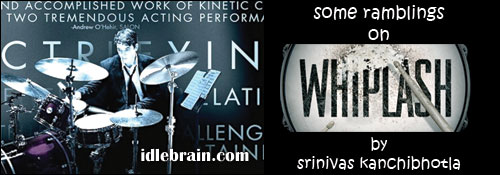
The legendary basketball coach for more than a three decades for Indiana University Hoosiers team from the 70s to the new millennium, Bobby Knight, subscribed to the old school coaching methodology, where address to the coach should necessarily be prefixed with a Sir or Coach, the student had little to no say on his role in the side, the coach takes the final call whether the student-athlete even graduates from college, and the student had to surrender himself to the will and the whims of the coach. These rules are immutable with the coach having the full support of his employer, the University. Hundreds of students who passed out that college having played under Knight vouch by his tough coaching methods even calling themselves as the knights of Knight and heavens better fall before they let anything or anyone sully the coach's name or reputation. Here is where it gets tricky. Near the end of his reign, he was pulled up by the same university that stood by him before for coming down heavily on one of his students during one of his training sessions, after the student had complained that he had been choked by the coach for hanging loose on the court. In a measure that was as near to a slap across the face as it could get, the coach was summarily dismissed as a part of the university's new 'zero tolerance policy' ignoring the innumerable achievements that the team notched up under his tutelage before. The maelstrom that followed after belied the political correctness of the current era. Past and current students rallied around Knight on all media outlets supporting him and his coaching techniques to the hilt decrying the witch hunting of the same methodology that won laurels and championships to the team. Player appearing to be loitering on the court, chairs were thrown at them, athletes repeating the same mistakes on the floor, a swift kick on the rear on a tight slap on the back of the head, disrespect at any of the coaching stuff, summary dismissal from the team... Contrast that with the new age teaching/coaching/goading philosophy of incentivizing success or offering inducements for aiming for mere normality (forget about excellence), Knight might come across an as anachronism stuck in the time of disciplined (read, harsh) teaching era. So the question whether the results could gloss over the methods becomes pertinent in this age where grades replaced the actual marks lest the low scoring ones suffer from a terrible bout of low self-esteem.
'Whiplash' is that tough love relationship between the teacher and the pupil set in a music school, with the teacher, a no nonsense jazz conductor, and the pupil, an equally stubborn and resolute drums player. Even in such an unexciting setting, 'Whiplash' plays as a thriller, a psychological study, a clash of egos and above all an unvarnished glimpse at high profile music schools where teachers have little patience for mediocrity and pupils have the constant impossible task of consistently living up to both their own genius selves as well as the high expectations of their mentors. Art, unlike science, is purely a subjective study and where the interpretation of results is time sensitive - the same piece at one point of time might have a completely different appeal at a different time for any number of reasons. Such vagaries in art appreciation especially from the high seat of power, like that of a teacher, becomes a potent weapon - incisive yet illuminating, if the teacher has noble intentions, degrading and demeaning, if the teacher is unfit for the role. J K Simmons delivers a tour de force performance as a high strung teacher whose intentions aren't entirely known, whether he is jealous of his prodigy pupil, or if he really wants to whip the raw talent into shape and the only way he knows how is by being hard on his student. The examples are countless out there in the real world of students who have hated their times while being under the thumb of their teachers, yet developed a new found respect for their teaching ways after the fact that the same teaching got them to high places. Bobby Knight gets taken down for behaving the same exact way to that litigious student as he had behaved with many others before who eventually ended up in the NBA, the pinnacle in basketball success, and credit their success to Knight's teaching ways. The line is never clear in a mentor-protegee dynamic between what is abusive and what is being tough, as the results have no way of proving one versus the other. Not only are the ends totally confused about the means, leave alone justifying them, the question arises whether the means have any say in the final result at all when it comes to training a genius - could Tendulkar not have made it, had it not been for Achrekar?
Miles Teller assays the role of the gifted drums player with great conviction and authenticity (specially during the minutes long drum solos) taking his teacher head on, in intensity and frustration. While there are aplenty, movies with ideal teachers who walk into a strict setups and change the lives of their students in heartwarming ways, there are really few that have a contentious teacher-student relationship, which look more like a game of upmanship than the regular give and take, and even few where both the teacher and student are both wrong and both right like 'Whiplash'. Parallels can be drawn to the martinet drill sergeant role in 'Full Metal Jacket' and the ever caustic and abusive studio head teaching him temp the ways of the world in 'Swimming with Sharks'. To prepare the student for the life of long hardship in the real world, does a teacher need to be its first usher?
checkout http://kanchib.blogspot.com for Srinivas's Blog.
